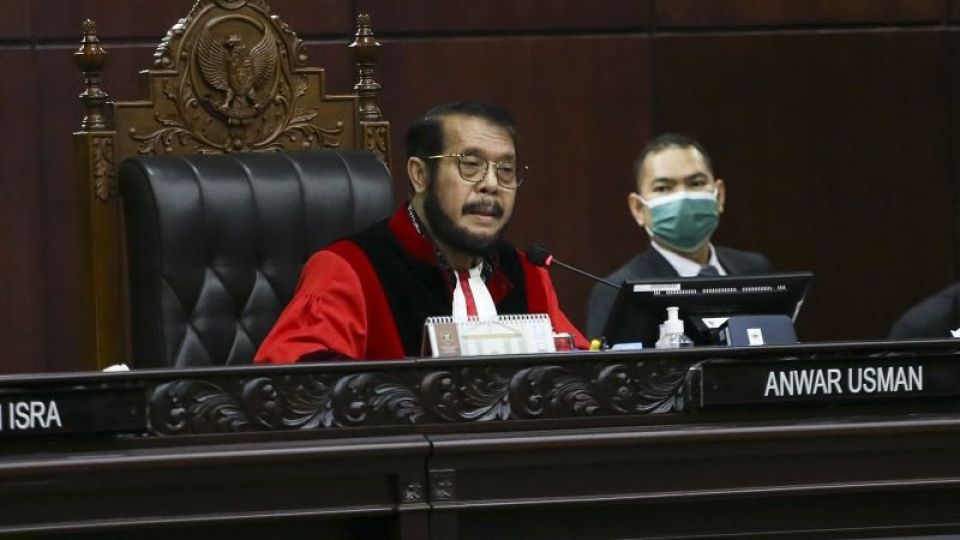October 24, 2023
JAKARTA – The Constitutional Court formed an ethics council to investigate alleged conflicts of interest in a ruling that cleared the way for Surakarta Mayor Gibran Rakabuming Raka, the eldest son of President Joko “Jokowi” Widodo and the nephew by marriage of Chief Justice Anwar Usman, to contest the presidential election.
This came after some lawyers, activists and several individuals filed separate reports with the court demanding an ethics probe into Anwar and other justices following the Oct. 16 ruling that expanded the candidacy requirements for next year’s presidential election to include elected officials under the age of 40.
One of the complainants is rights group the Indonesian Legal Aid and Human Rights Association (PBHI), which demanded a probe into the five-justice majority that swayed the ruling in favor of altering the candidacy requirements for the presidential election next year, including Anwar.
Anwar participated in the decision-making process for the ruling, even though he had previously recused himself from ruling on three earlier petitions to change the age. The ruling also appeared to be a direct about-face from the three previous rulings that upheld the minimum age of candidacy of 40 without exception, in a 6-2 decision with Anwar recusing himself.
A coalition of lawyers calling itself the Nusantara Lawyers Movement, meanwhile, accused Anwar of “serious ethics violation”, demanding the council to dismiss Anwar from his post as a Constitutional Court justice.
Read also: Legal groups demand ethics probe into Constitutional Court chief justice following ruling
Speaking at a press conference on Monday, Constitutional Court Justice Enny Nurbaningsih said all nine justices had agreed to appoint Justice Wahiduddin Adams to the three-member ethics council established for the investigation.
The other two members are former chief justice and a Regional Representatives Council (DPD) member Jimly Asshidiqie and Bintan Saragih, a law professor at Pelita Harapan University who was a member of a previous court ethics council.
“We leave the matter to the ethics council, which will investigate the alleged ethics breach,” Enny said, adding that no justices would interfere with the investigation.
According to a 2023 Constitutional Court regulation, the court must form a temporary ethics council to follow up on any reports on alleged ethics violations by any justices. Such a council is only given 30 working days to check and make rulings on the reports. However, their working period can be extended for another 15 working days if necessary.
Read also: Presidential age minimum ruling raises conflict of interest concerns
The Oct. 16 controversial ruling that effectively removed the legal barrier for the 36-year-old mayor Gibran to contest next year’s presidential election was issued just days before the weeklong registration for candidates opened last week. The game-changing ruling has triggered concern over the integrity of the election and a wave of condemnation against Jokowi’s seeming effort to build his own political dynasty. Less than a week after the ruling, Gibran was named by presidential hopeful and Gerindra Party chair Prabowo Subianto as his running mate for next year’s presidential race.
Four dissenting justices in the case – presidential appointee Saldi Isra, House appointees Wahiduddin Adams and Arief Hidayat and Supreme Court appointee Suhartoyo – were also reported to the ethics council by other complainants for their legal opinions opposing the ruling.
The Constitutional Court has received at least seven reports to date.


